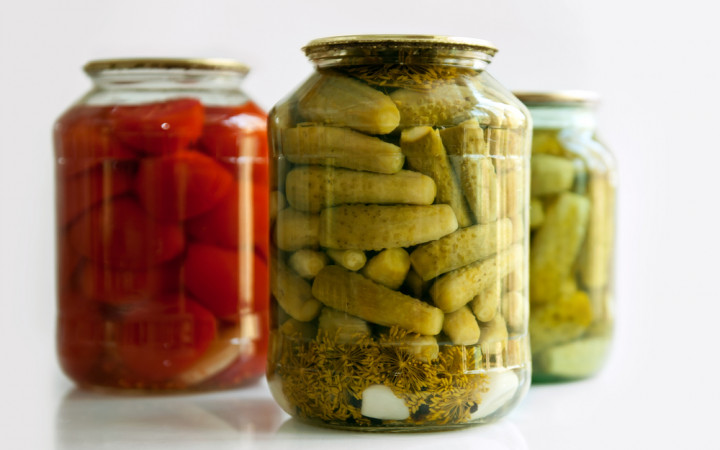Have you ever had homemade salsa or juicy strawberries from someone's garden? The taste of fresh fruits and vegetables just can't be beat. But is there a way to enjoy those fruits and vegetables throughout the year?
In fact, there is! People have used home canning — sometimes called "jarring" — to preserve food for more than a century. Homegrown fruits and vegetables, as well as meats and seafood, can be preserved so they can be enjoyed for months to come.
Home canning offers many, many benefits. By preserving homegrown fresh fruits and vegetables, you can limit your exposure to some of the potentially harmful chemicals and pesticides that are used often on food found in stores.
Using your own home canning recipes, you can also limit the amount of added sugar, salt, and preservatives that are found in many processed foods you buy at the store. In this way, home canned foods can be more nutritious than their store-bought counterparts.
Even though you can buy “canned" food at the store, home canning uses glass jars. Most people could not afford the expensive machinery that food manufacturers use to can food for stores. Instead, they use glass jars with seals and reusable lids.
Home canning got started long ago before the days of food preservatives and refrigeration. People needed a way to preserve foods to keep them from spoiling from exposure to mold, yeast, and bacteria.
Over time, people discovered that they could heat foods to a temperature hot enough to kill bacteria. They would then seal the heated food in an airtight container, and it would stay edible for months, if not years.
Today, two main tools or methods are used in home canning. Foods with large amounts of acid, such as fruits and tomatoes, can be canned using a boiling water bath canner.
Because these foods are naturally high in acid, they only have to be heated to approximately 120° F to kill bacteria. Most large kitchen pots can be converted into a boiling water bath canner.
Foods low in acidity, like vegetables and soups, must be canned using a pressure canner. Pressure canners use a sealed lid to increase air pressure to elevate temperatures to 240° F or higher to kill bacteria. Pressure canners can be bought in stores.
Why is it so important to make sure bacteria is killed? If you can vegetables, for example, and fail to use a pressure canner that reaches the correct temperature, your canned vegetables could cause botulism.
Botulism is a very serious, sometimes fatal form of food poisoning. It's caused by Clostridium botulinum, a common bacterium that can be found just about anywhere.
Using proper canning techniques — especially making sure that correct temperatures are reached — will successfully kill these bacteria.




